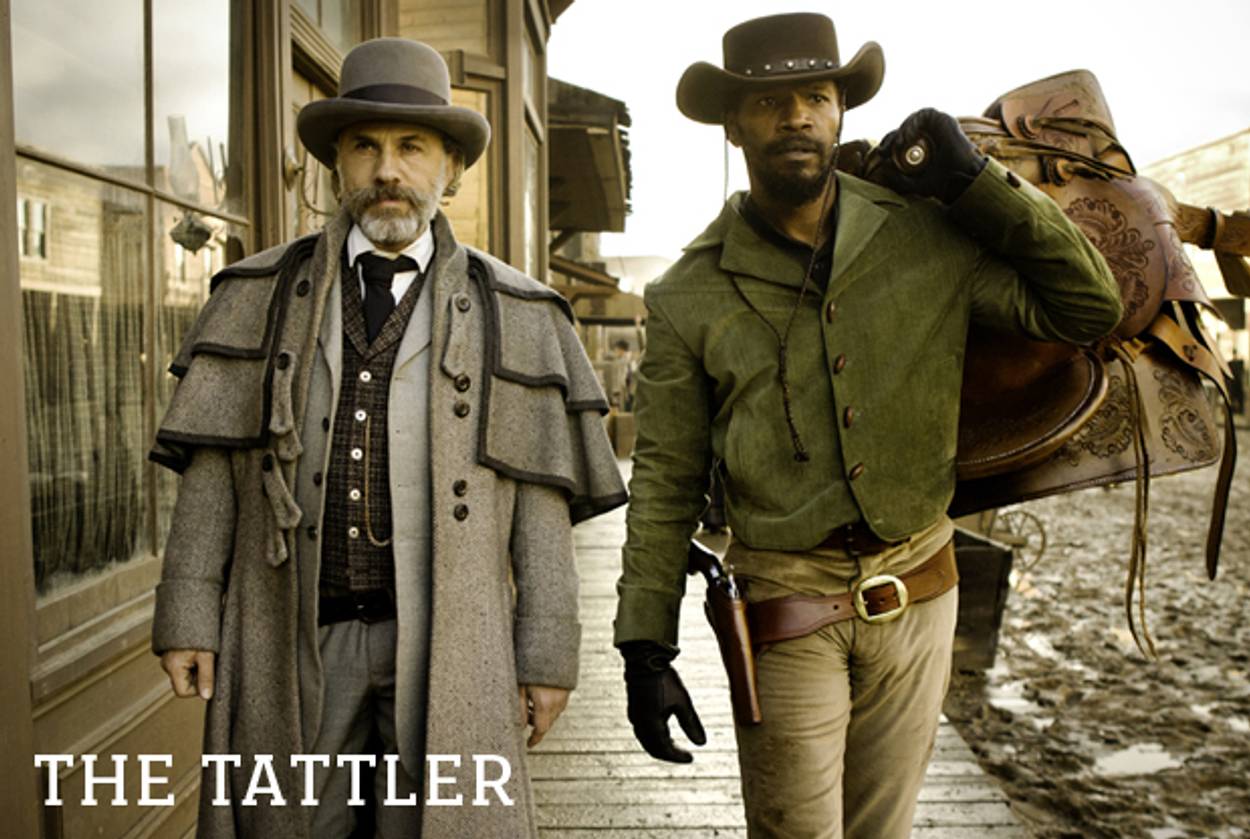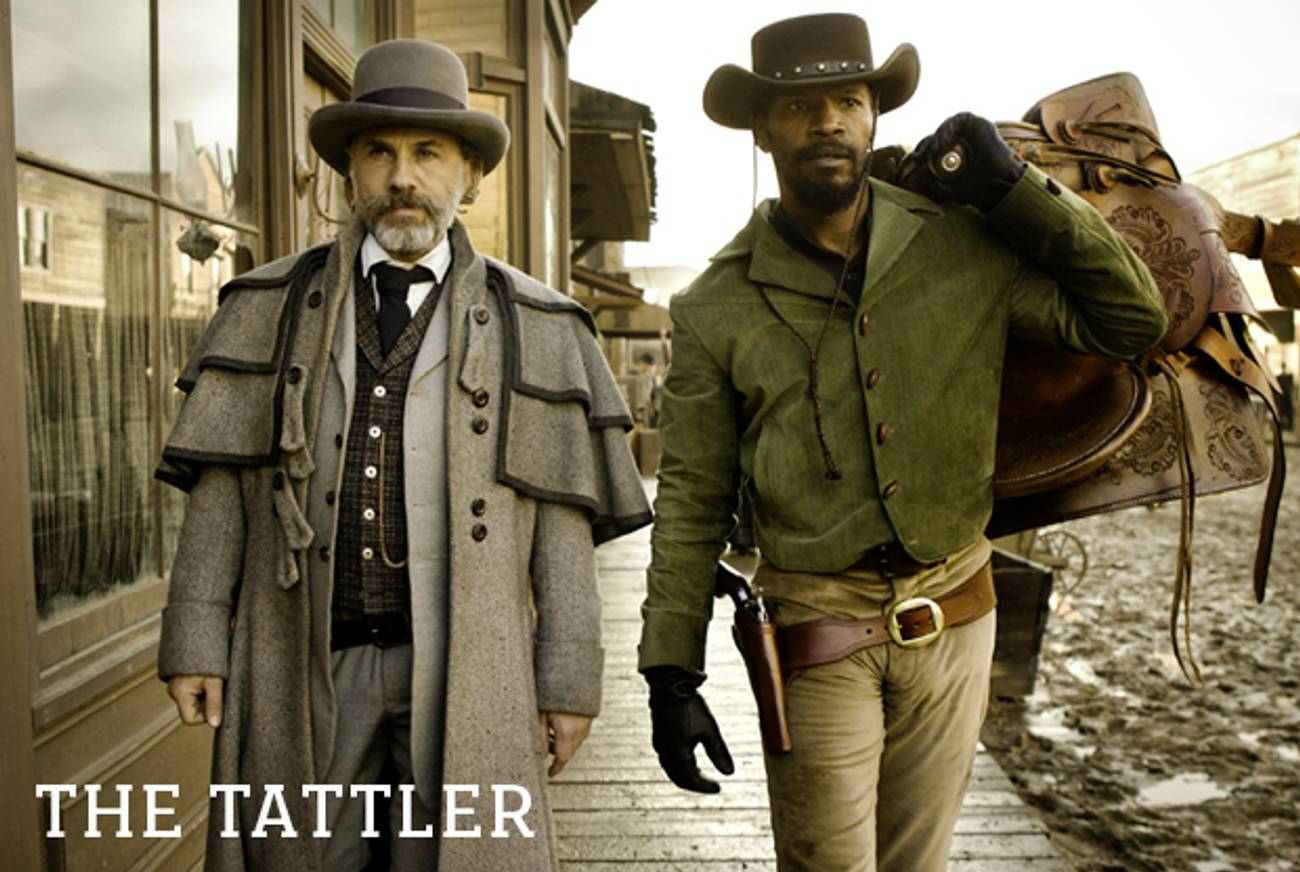A Film Theory
Today on Tablet, Rachel Shukert takes on slavery in the movies
January 18, 2013

Schultz (Christoph Waltz) and Django (Jamie Foxx) in Django Unchained.(Andrew Cooper/The Weinstein Company)



Today on Tablet, Tattler columnist Rachel Shukert argues that it’s about time blockbuster movies like Quentin Tarantion’s Django Unchained brought slavery to the forefront of the American moviegoing consciousness:
When it comes to portrayals of cataclysmically human events of nearly incomprehensible scale, there’s a new sheriff in town. It’s been a long, a long time coming, but a change is going to come.
We first saw it in the opening scene of Steven Spielberg’s Lincoln, when a recently freed former slave, in the uniform of the soon-to-be-victorious Union Army, proudly recites passages from the Gettysburg Address to its visibly moved author. It’s a neat and evocative parallel to the final scene of Schindler’s List—the gratitude of the saved, the ambivalence and self-doubt of their saviors (Schindler’s anguished cry that he could have done more; Lincoln’s clear guilt at the idea that he has freed this man only to send him off to die in a war Lincoln himself might have somehow prevented)—and no less effective for being such a blatantly direct hit to the nose, and to the heart.
Read the rest here.
From the editors of Tablet Magazine.